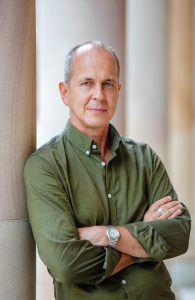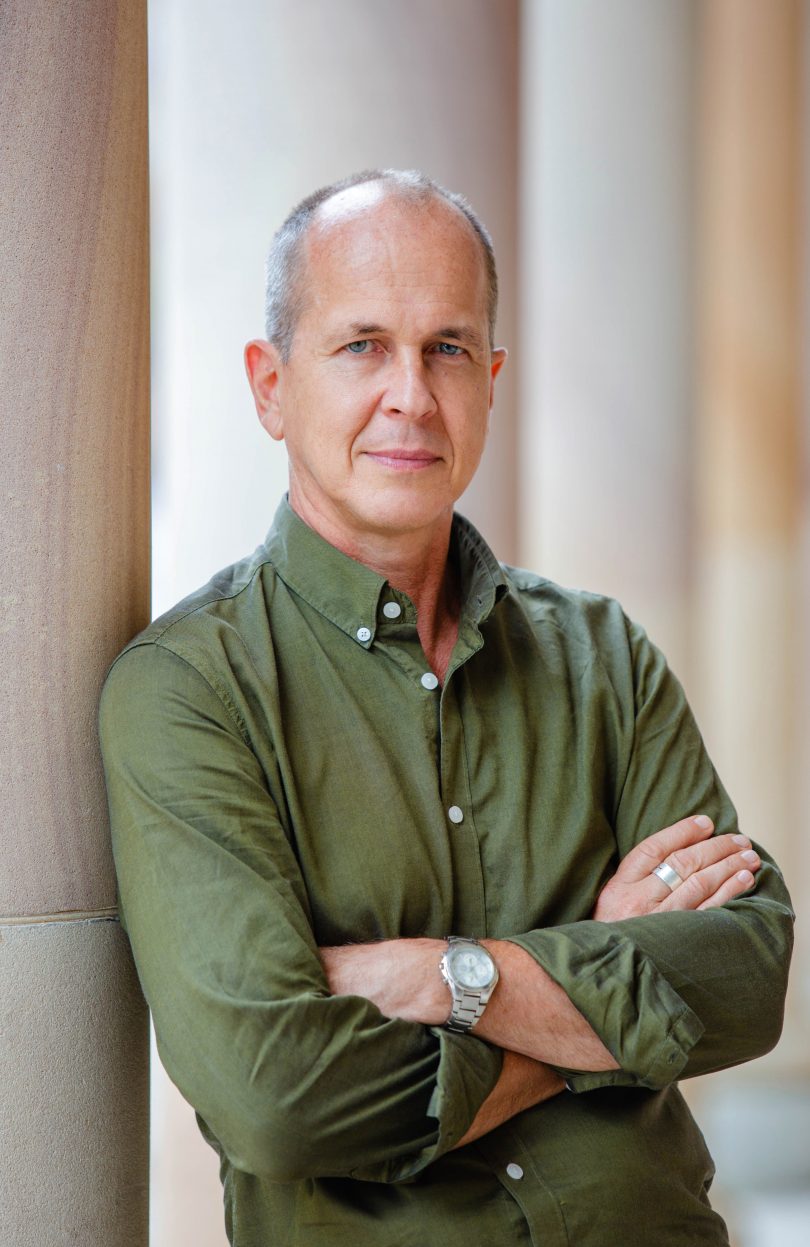Peter Greste on when journalists need to become activists.
A tightrope act
To maintain trust and legitimacy, political journalists must walk across a treacherous tightrope.
This rope straddles the journalist’s obligation to present a factual and digestible story to the public on one side, and the journalistic imperative to avoid simply echoing politicians’ messaging on the other.

Journalist and advocate Peter Greste (Supplied by University of Queensland)
Journalist and press freedom advocate Peter Greste identifies the tension between the Australian government’s national security concerns and press freedom as one such tightrope.
But Greste also points to the politics of language and the need for journalists to understand the implications of the words they use.
The slippery rope of language
Language is not a neutral medium and nor should journalists treat it like one.
As Greste explains, “language itself is political…the thing that journalists have to be aware of is how that politics works”.
George Orwell’s essay, ‘Politics and the English Language’, shows that meaning in language is fluid and inherently political.
Orwell says that political terms such as, ‘democracy, socialism, freedom, patriotic, realistic, justice, have each of them several different meanings which cannot be reconciled with one another …words of this kind are often used in a consciously dishonest way. That is, the person who uses them has his own private definition, but allows his hearer to think he means something quite different.”
This linguistic slipperiness means it is all the more crucial for reporters to avoid uncritically replicating the language of politicians such as the post-9/11 “us” and “them” rhetoric of the Bush administration and Howard government.
Spinning off course
For their part, politicians and their support teams are well aware of how journalists operate and ‘spin doctors’ make the tightrope walk even more volatile.
University of Canberra Associate Professor of journalism Caroline Fisher alerts reporters to the various methods these media advisors use to evade accountability and promote politicians.
Tactics such as ‘dog-whistling’ use duplicitous meanings of language to communicate one message to one audience and a different message to another.
These techniques mean that journalists have to be extremely careful when reporting on media releases and official statements.
Lancaster University Emeritus Professor of linguistics Norman Fairclough uses the term ‘boundary maintenance’ to describe how reporters include outside voices in their story.
The simple choice between paraphrasing or using quotation marks changes the distance that journalists put between themselves and the person whose voice they are representing.
These types of decisions allow journalists to have some agency in how they walk across the tightrope.
Beyond the boundaries of fact-checking
The politics of language prevents reports from solely relying on fact-checking which, while useful, has its limits.

“Pauline Hanson 2017 01” by jfish92
In applying this understanding of language into an Australian political context, Queensland University of Technology Associate Professor of journalism Angela Romano studies how journalists reported on Pauline Hanson’s 2016 maiden speech in the Senate.
In her findings, Romano refers to Hanson’s infamous “swamped by Muslims” statement and says, “When Hanson claimed that Australians were at risk of being ‘swamped’, a starting point for framing would be to first ask what does being ‘swamped’ actually mean.” If Hanson was indicating that Australians would feel overwhelmed once the Muslim population had increased past a certain percentage, what percentage/s marked the tipping point?
Hanson’s use of language made it difficult to fact-check.
Orwell has reason to caution politician’s use of metaphors and euphemisms as these linguistic techniques are difficult to declare as either ‘true’ or ‘false’.
Greste suggests that if journalists, “step aside and use different language, that’s still a fundamentally a political act, but at least it’s a consciously political act”.
But it is still no easy feat for reporters cross the tightrope of political journalism successfully.





